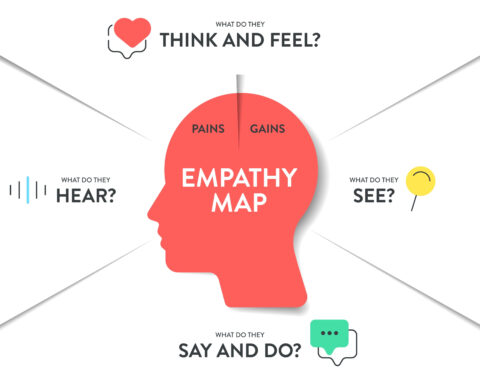Table of Contents:
The metaverse might seem like its brand new, but some forward-looking companies have already begun development on metaverse solutions in an attempt to get ahead of the crowd. Most people are aware of Facebook’s foray into the metaverse space after Mark Zuckerberg’s announcement in October 2021 that he would be changing the company’s name to Meta. It may also come as no surprise that other tech giants like Microsoft and Google have been pouring investment into this area, but many other companies are developing metaverse businesses that you may be less familiar with. Read on to find out what companies are already doing with the metaverse and what might be coming in the future.
The major players
As you might expect, companies like Facebook and Microsoft are thinking about the potential of the metaverse for social media and business needs, with Zuckerberg already providing Horizon Workrooms, where people can come together in virtual meetings. Rather than standard online meetings where people interact via a flat image on their screens, you can become an avatar of yourself in a fully 3D space while still working with your own physical computer and keyboard, which will also appear in the virtual room with you, thus existing in both spaces at once. And the hand tracking capabilities of this new technology mean that you won’t have to use controllers of any kind. This truly will be a mixed reality space.
Microsoft is on their way to producing their own mixed reality platform, Microsoft Mesh. At the moment, people can simply have their virtual avatar projected onto their colleagues’ screens, but it will eventually use holoportation technology to allow people to appear fully within the metaverse space and ‘teleport’ between different environments.
XR Wizards are doing similar work, but with more of a focus on enterprise solutions for healthcare, finance, industry, and education. They are already creating a series of ‘Mazerspaces’, metaverse spaces similar to those offered in Facebook’s Horizon, but with a more professional feel, specifically built with the business world in mind. The functionality of these spaces goes way beyond simple meetings though. They can be used for all sorts of things, including product launches, training, conferences, and even full marketing campaigns. These applications take place with full-body avatars that react with realistic eye contact, emotions, and facial movements, and the virtual space can be populated with complex virtual objects which multiple users can interact with at the same time. Through these metaverse spaces, users can experience real-life scenarios of a kind never seen before in the virtual world. And not only will workers be able to ‘teleport’ quickly and easily from one metaverse space to another within their own business, but connections will also be made between businesses, opening up incredible possibilities for the future of collaborative working.
Old hands and new ideas
JPMorgan
JPMorgan is another company who has recently announced their own metaverse solutions, becoming the first bank to have a branch in the virtual world. Known as the Onyx lounge, it exists in Decentraland, a metaverse space which uses Ethereum blockchain technology to allow people to trade things such as virtual real estate and other digital products within the world. This idea of metaverse commerce and the trading of digital products may seem strange to some, but it has been a part of the gaming world for several years now, with companies selling their own in-game currencies. Metaverse commerce is sure to take this to the next level.
Zepeto
One place where this kind of trading is already commonplace is the South Korean app Zepeto. Designed by Naver Z Corporation and released in March 2018, it already has more than 10 million users, who can create and customize their own avatars within the 3D metaverse space. This has led to the creation of new jobs as ‘virtual influencers’ produce their own digital items which they can then sell to other users. These can include things such as digital clothes for people to add to their avatars, which may sound unusual, but with this kind of trade already becoming popular, big fashion brands are getting in on the act, with Gucci and Dior hoping to sell their own digital items on the platform. And it’s not only fashion brands who are taking advantage of this technology – governments are also keen to explore how this new frontier can improve how they work. The Seoul government recently made a large investment to develop a metaverse solution where AI characters can help residents to solve their problems virtually rather than having to come all the way to meet someone in person.
Nike
Nike is another big company getting involved in metaverse commerce. They recently teamed up with Roblox to create Nikeland, a kind of virtual playground where users can create avatars and play sports as them. Eventually, they want to sell their own branded products within the virtual world that people can use to customize their avatars. Roblox may not be as well-known as Nike, but they have serious acumen when it comes to the metaverse; they were the first metaverse company to publicly reveal itself as working in this new space. Its online gaming platform allows users to create their own worlds and games, which they can then share for other users to experience. They have also been using a kind of ‘metaverse currency’ for a while now too. The Roblox platform could give us an insight into what the future of metaverse spaces might look like. It has its own ecosystem built up of the creations of many different users and could potentially be a place where young people build metaverse businesses in the future. Only time will tell.
Disney
One other heavyweight who recently threw their hat into the ring of metaverse companies is Disney, who have announced that they will be allocating specific resources to investigate and design their metaverse strategy, including a specially selected executive and a team of expert staff. They hope to use the metaverse space to tell stories in an even more immersive and engaging way. With its merging of the physical and digital worlds, it could potentially provide a method of storytelling free from the boundaries of the screen or the limitations of the physical world.
Getting ahead
With all of this interest, companies such as the Blockchain Council have developed online training to create certified Metaverse Experts. They offer to train you in the workings of metaverse technologies so that you can go out and explore the ways in which this new technology can be harnessed by metaverse companies in the future. With the way things are developing, it might be worth getting a few of your employees trained up as Metaverse Experts so that you can be prepared for what’s to come.
Needless to say, there are many companies getting involved in this new world, and metaverse businesses won’t be confined to any one industry. Maybe you’re surprised by how many companies are already developing metaverse solutions, or maybe you’ve already been taking steps to develop your own metaverse company. Either way, this exciting new virtual space is sure to grow and develop in the years to come as companies continue to discover new ways to build their brands within it.
One thing’s for sure: you won’t want to miss out on the latest metaverse technologies offered by XR Wizards. Their Mazer platform, within which customized metaverse spaces can be built, employs a honeycomb structure of connected extended reality spaces in which incredibly realistic interactions can take place to truly take the metaverse to the next level. Mazer contains patented technology that connects existing Web 2.0 websites with VR in a completely interactive way, allowing companies to enjoy the benefits of the transition to Web 3.0 that the metaverse represents. So, what are you waiting for? Now is the time to start integrating the 3D capabilities of Mazer metaverse spaces into your business before you find yourself left behind in a bland 2D space.








